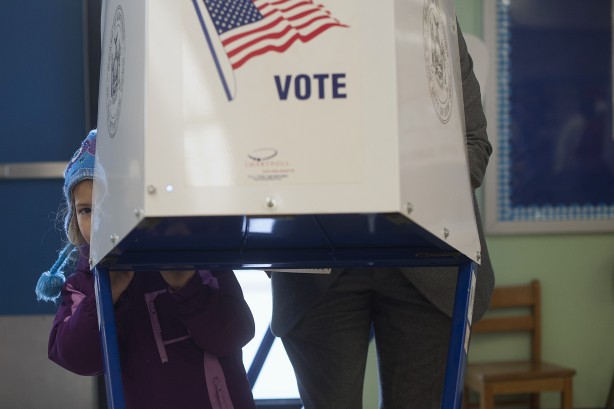Few lawmakers support designating Election Day as a national holiday

Low voter turnout has plagued the U.S. for decades, and voting rights advocates are concerned new voter ID laws as well as the effects of the Supreme Court’s 2013 decision to overturn a key provision of the Voting Rights Act will drive participation in the 2016 election even lower. Some voting rights advocates support establishing Election Day as a national holiday, but Thomson Reuters Westlaw data shows that few lawmakers back the idea.
At the state level, only one proposal has called for designating Election Day as national holiday since 2015, according to Westlaw data. A resolution in Michigan, 2015 MI H.R. 181 (NS), called upon the U.S. Congress to adopt Election Day as a national holiday. It declared: “A national holiday designation would ease obstacles to voting and increase election participation. By making the November election a holiday, issues like excessively long morning and evening lines at some polling places would be mitigated.”
At the federal level, two bills related to election laws and holidays have been proposed since 2015, Westlaw data shows. Among the proposals is 2015 CONG US S 1969, which Senator Bernie Sanders introduced as the Democracy Day Act of 2015 to “to designate Federal election day as a public holiday.”
Westlaw data shows that going back to 2005, only one other proposal at the state level – 2013 TX H.C.R. 42 (NS) – urged Congress to declare Election Day as a national holiday. The Texas bill cited low voter turnout across the U.S., compared with that of other countries, as the need for the holiday designation.
Outside of the U.S., strong election participation in countries like Australia, Belgium, Germany and India may be attributed to holding elections on weekends or on designated holidays. High voter turnouts in some countries may be due to factors including compulsory voting laws, which, even if they’re not strictly enforced still have an impact on turnout, and automatic registrations for voters once they’re eligible.
Calls for similar measures in the U.S. have stalled, though President Obama mentioned in a recent interview with a Rutgers University student newspaper, that he would support holding elections on national holidays or weekends. Will his endorsement provide some momentum behind establishing a national voting holiday?
Probably not, according to Adam Bonin, attorney and co-author of Navigating Election and Political Law: Leading Lawyers on Understanding Campaign Finance, Speech, Voting Rights, and the Laws that Govern.
“Among people who are interested in expanding voter turnout – making it easier to vote – the movement hasn’t been so much toward making Election Day a federal holiday as it is towards expanding the number of ways someone can vote,” he explains.
He said the lack of support for a national holiday boils down to this perspective: “Whether it’s in-person early voting or vote by mail, the idea is: Why should we be locked into a single day for elections?”
Proponents suggest it would increase election participation by allowing people to cast votes without jobs interfering, and it underscores the importance of elections in a democracy.
“There’s something to be said for civic tradition that it all comes down to one day,” Mr. Bonin acknowledges. “But the important thing should be that lawmakers are working toward making voting easier and convenient, while maintaining the security and reliability of what we have right now.”